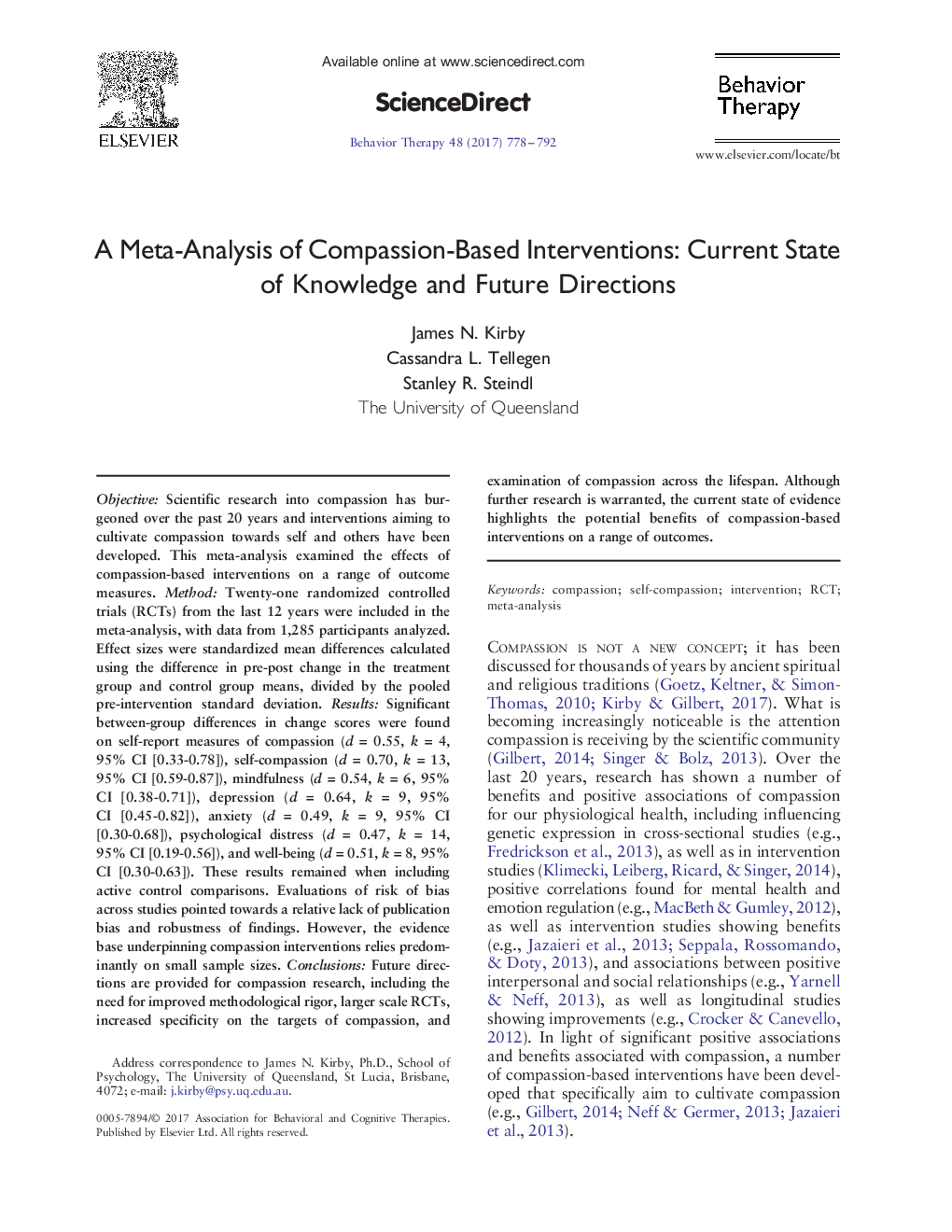| کد مقاله | کد نشریه | سال انتشار | مقاله انگلیسی | نسخه تمام متن |
|---|---|---|---|---|
| 5037968 | 1472732 | 2017 | 15 صفحه PDF | دانلود رایگان |
- Scientific interest in compassion has increased in the last 20 years
- There are a number of compassion-based interventions available
- We meta-analysed 21 compassion-based intervention RCTs
- Moderate effect sizes were found for all seven outcomes variables
- 20 recommendations are provided to improve compassion-based intervention research
ObjectiveScientific research into compassion has burgeoned over the past 20 years and interventions aiming to cultivate compassion towards self and others have been developed. This meta-analysis examined the effects of compassion-based interventions on a range of outcome measures.MethodTwenty-one randomized controlled trials (RCTs) from the last 12 years were included in the meta-analysis, with data from 1,285 participants analyzed. Effect sizes were standardized mean differences calculated using the difference in pre-post change in the treatment group and control group means, divided by the pooled pre-intervention standard deviation.ResultsSignificant between-group differences in change scores were found on self-report measures of compassion (d = 0.55, k = 4, 95% CI [0.33-0.78]), self-compassion (d = 0.70, k = 13, 95% CI [0.59-0.87]), mindfulness (d = 0.54, k = 6, 95% CI [0.38-0.71]), depression (d = 0.64, k = 9, 95% CI [0.45-0.82]), anxiety (d = 0.49, k = 9, 95% CI [0.30-0.68]), psychological distress (d = 0.47, k = 14, 95% CI [0.19-0.56]), and well-being (d = 0.51, k = 8, 95% CI [0.30-0.63]). These results remained when including active control comparisons. Evaluations of risk of bias across studies pointed towards a relative lack of publication bias and robustness of findings. However, the evidence base underpinning compassion interventions relies predominantly on small sample sizes.ConclusionsFuture directions are provided for compassion research, including the need for improved methodological rigor, larger scale RCTs, increased specificity on the targets of compassion, and examination of compassion across the lifespan. Although further research is warranted, the current state of evidence highlights the potential benefits of compassion-based interventions on a range of outcomes.
Journal: Behavior Therapy - Volume 48, Issue 6, November 2017, Pages 778-792
